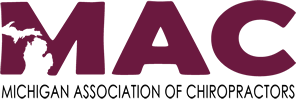Complete Story
02/10/2020
Clinical Compass Releases New Recommendations for Non-Drug Treatment of Neck Pain
“Best Practice” Treatments Outlined Based on Best Available Scientific Evidence
Clinical Compass, a national chiropractic organization charged with developing and evaluating evidence-based practice information, has released a comprehensive best practices recommendation for conservative, non-pharmacologic and non-surgical treatment of neck pain and whiplash disorders. Titled, “Best Practice Recommendations for Chiropractic Management of Patients with Neck Pain,” and published in the Journal of Manipulative and Physiologic Therapeutics (JMPT), this paper is expected to reduce variation in care, provide patients with additional treatment options, and validate commonly used treatments typically employed by chiropractors and physical therapists.
“Neck pain is one of the leading causes of disability,” states Wayne Whalen, DC, lead author of the recommendations. “This paper provides a comprehensive review of conservative, drug-free care options for patients with neck pain, and helps providers, patients and payors select the care that is most effective with the lowest risks.”
According to the paper, the most effective care includes manipulation, mobilization and exercise, often referred to as “multimodal care.” Other forms of care which have been shown to help based on the scientific literature include low level laser therapy, massage, acupuncture, electrical stimulation such as TENS, traction and other modalities. The paper also recommends short (6-12) visit trials of care to determine if they are helping, as well as collaborative care with other providers as necessary.
In the past several years, there have been other clinical practice guidelines published for neck pain, but many posed unresolved questions regarding the appropriateness of certain treatments, exam procedures, or other aspects of care. Clinical Compass combined the best available evidence with expert consensus in this groundbreaking recommendation. By utilizing a large panel of 56 neck pain experts to fill in gaps where there is no definitive scientific evidence, the authors were able to develop a more comprehensive set of recommendations for providers which should improve consistency in and quality of care for patients with neck pain.
Dr. Whalen concludes: “Developing a consistent approach to manage neck pain based on the best available evidence is important to providing optimal patient care. The development of this best practices recommendation helps providers use approaches that yield clinically and cost-effective management of neck pain.”
For more information, click “Best-Practice Recommendations for Chiropractic Management of Patients with Neck Pain.”
About Clinical Compass
Founded in 1995 by the Congress of Chiropractic State Associations (ChiroCongress), the Clinical Compass (formerly CCGPP) mission is to improve patient outcomes by advancing evidence-based care in an effort to transform healthcare through knowledge translation.
Source: Clinical Compass Press Release, “Clinical Compass Releases New Recommendations for Non-Drug Treatment of Neck Pain,” January 7, 2020


